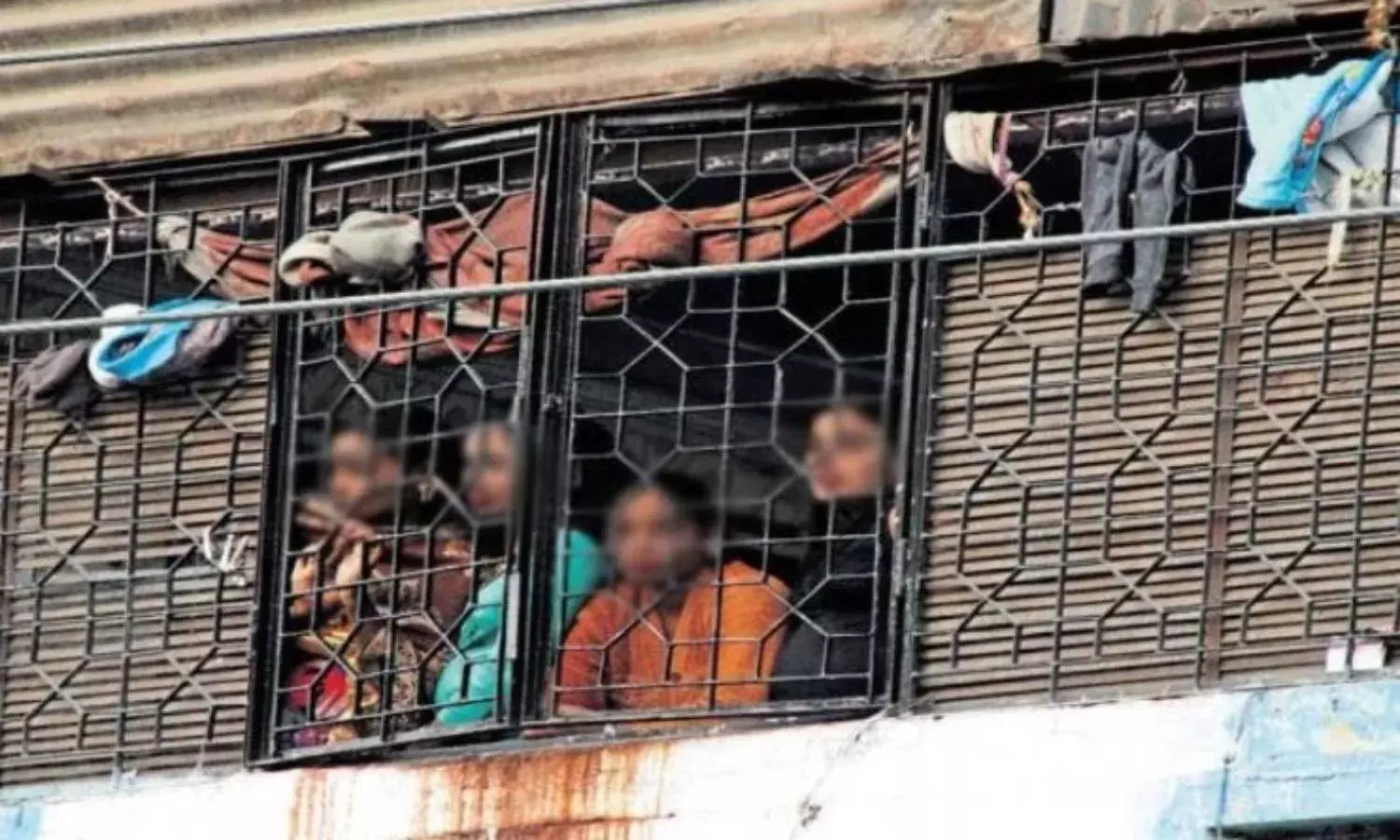'Our Business Thrives on Touch, And Touch Has Become Scary'
Sex workers in Kolkata's Sonagachi struggle as business suffers

“When the lockdown was announced we were not prepared, overnight people lost their means of livelihood. For over three months there was no business,” says Kajol Bose, sex worker and secretery of the Kolkata-based Durbar Mahila Samanwaya Committee (DMSC). “Even when the lockdown was lifted, other businesses could slowly resume work, but in our profession you cannot practice social distancing.”
As the nation went into a lockdown, Kolkata’s Sonagachi too came to a stand-still. Home to the largest sex worker community in Asia, Sonagachi was once among the busiest streets in North Kolkata. With a community of over 11000 women engaging in sex work and over 25000 people visiting daily, these crowded lanes are kaleidoscope of experiences, emotions and a flourishing yet marginalised economy. Overnight, businesses were halted and bustling streets no longer had any visitors. While the government did little to address the concerns of this community, NGOs and collectives have played a pivotal role in ensuring that the community can sustain itself. In the mean-time, as the world goes digital, so does sex-work.
“Both sex workers and their customers are scared of contracting the virus. Our business thrives on touch and touch has become scary, so we have to look at alternative options. Some of us have started doing phone sex and video sex, but not everyone has smart phones and neither is the customer base so huge. Plus you can never dismiss privacy concerns. Many girls cover their faces while engaging in video sex,” Kajol tells The Citizen.
Kajol’s organisation, the Durbar Mahila Samanwaya Committee, instituted in 1999 is a collective of over 65000 sex workers male, female and transgender, across West Bengal. Over the years they have played a critical role in fighting for the rights of this marginalized community. As the pandemic slowed business and took a toll on their daily lives, with the help of partnerships they have ensured that every member of the community has access to basic means of sustenance. DMSC set up virtual networks where members would reach out to them in a situation where they did not have access to food. With the help of local MLAs, councilors and NGO partners, they would provide help where needed.
There are some very clear demands that the sex worker community has put forth. DMSC has been a part of the fight to regularize sex work since its inception. In India brothels are illegal. Over 7000 sex workers in Sonagachi are brothel based. “The importance of this legalization was visible even during the pandemic, initially only those who have ration cards were able to access essential supplies. To have a ration card, you have to have an address. If brothels are illegal then sex workers without a permanent address remain undocumented. They cannot access their basic rights. It is important that this sector is regularized and workers have rights, they have access to pension and minimum wage,” says chief advisor, Dr. Smarajit Jana
With daily earnings compromised, this collective has also successfully ensured that sex workers are exempt from paying rent during this lockdown. “During the lockdown we saw the community really come together and help us, several NGOs supported us like Ram Krishna Mission, HOPE Future, Shabdhangar, and several others. However, as the lockdown is lifting and life is returning to normal for most people, very few people continue to contribute,” said a senior member of this forum.
Members also complain that the government has not done enough. During the lockdown, DMSC had reached out to both the Central and State Government with their concerns. While the state government responded saying food coupons will be distributed to all members who do not have a ration card, their request for cash transfers to Nirmala Sitaraman went unheard.
While governments have done little, civil society organizations continue the good fight. Another such NGO is Uttar Kolkata Ananda Mandir, founded by Sankar sarkar, this NGO works towards ensuring that children of the sex worker community are not subjected social discrimination and get access quality education. During this pandemic, along with distributing essential items and working towards increasing awareness regarding the pandemic, they have also ensured education has not stopped for the young boys and girls who haven’t gone back to their villages. “We have used phones and whatsapp to ensure that we are in touch with our students and we motivate them to study regularly,” says Sankar Sarkar.
Members of this community have also been proactive and taken all the required prevention measures. They make their own sanitizers and masks and have distributed the same to all members of the community. “Sure, this is a business where the infection can spread very fast. In Sonagachi, you will see that over 70-80 people are staying in a three storey building. Plus our business is such that we have a much higher risk. But because we have taken extra care, today there are very few cases of corona virus within the sex worker community. God forbid if there are a lot of cases you won’t hold our clients responsible, you will point fingers at us, even now we are discouraging workers to resume work ” says Vishakha, sex worker and President of DMSC.
As sex workers take to using their phones and making videos, their clients are often not prepared for the shift. The customer base is very limited and the remuneration is not enough to make ends meet. Privacy concerns make the situation even more precarious. Moreover, the digital divide penetrates this sector too as many workers do not have access to smartphones. Hence, those who have families to feed and not enough resources, have been forced to resume work despite the risk. Engaging with only select clientele, they continue their work albeit wearing masks, taking protection and constantly sanitizing.
Cover Photo Credit: Feminism in India



